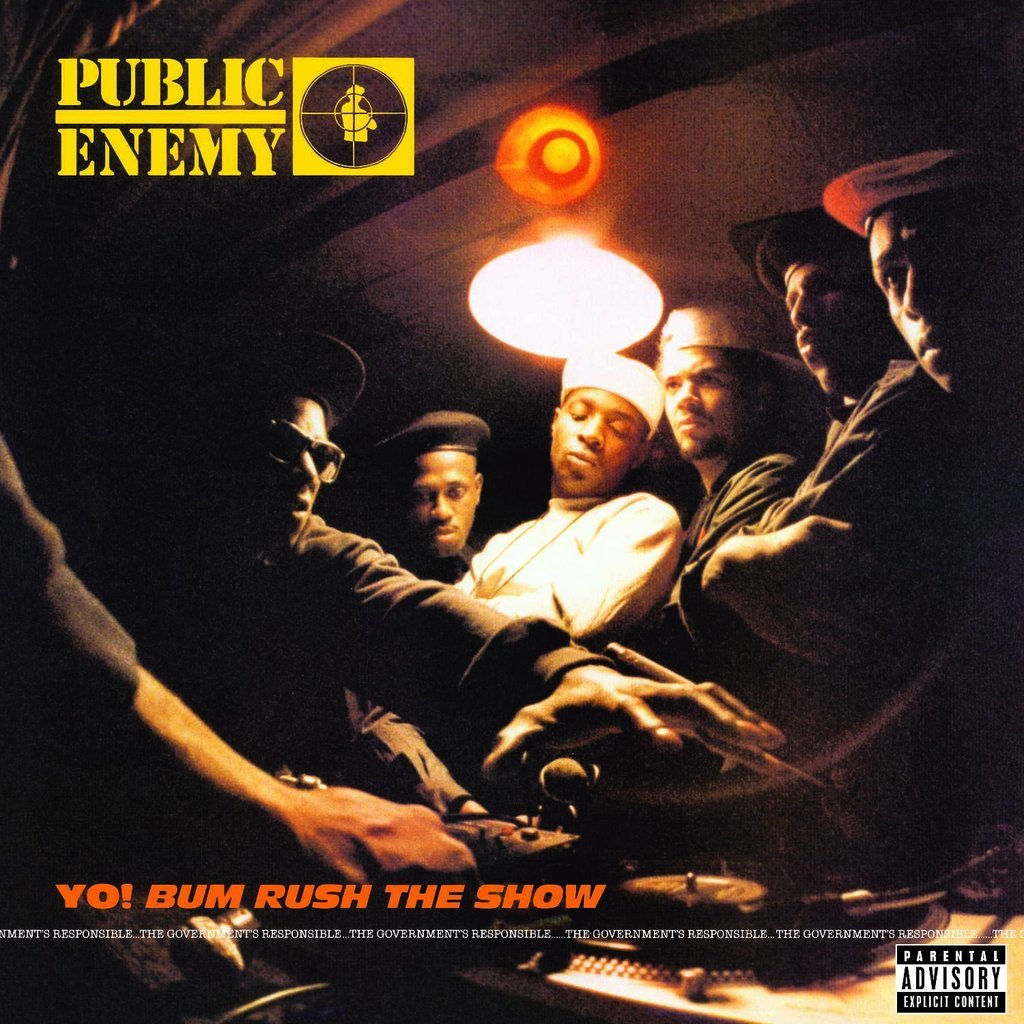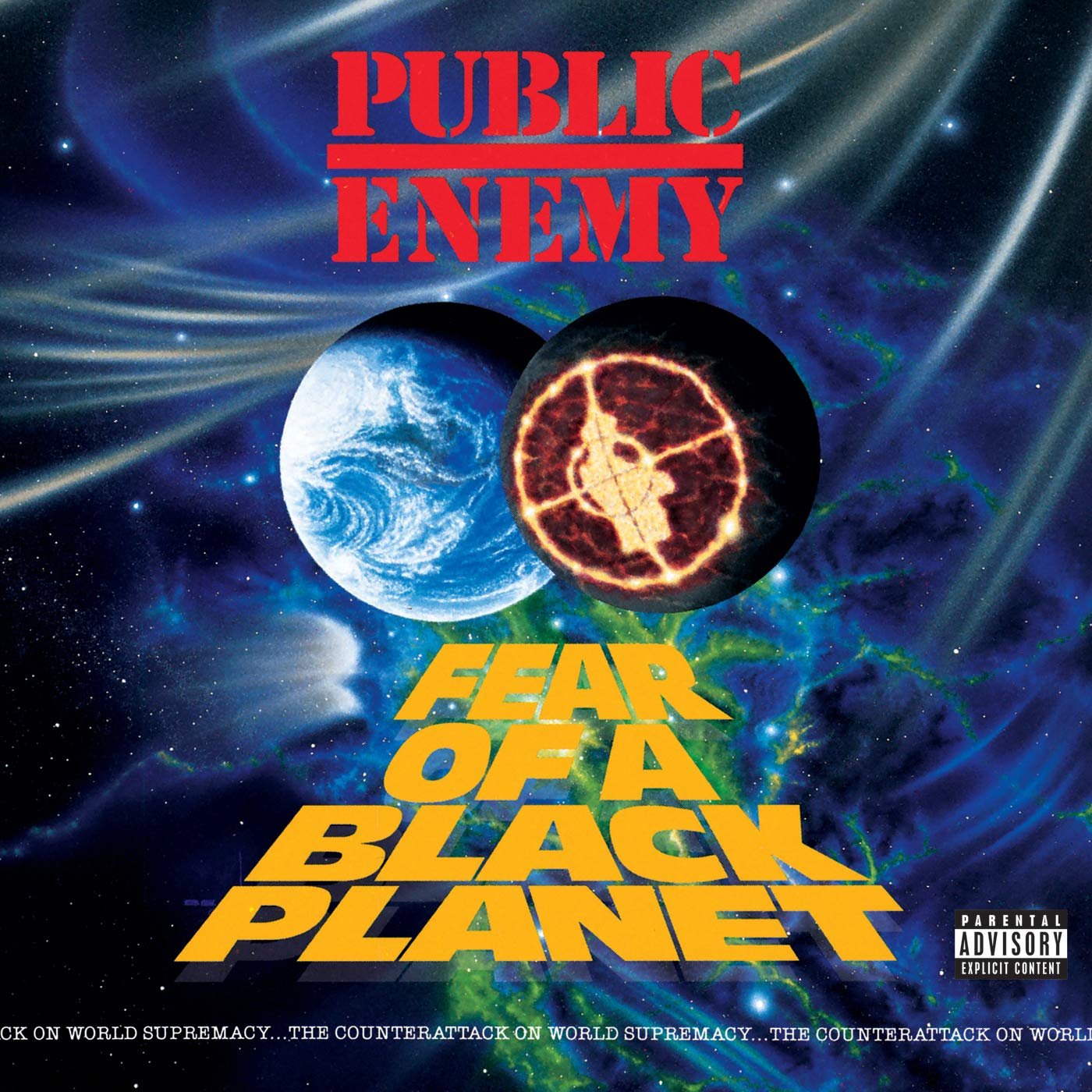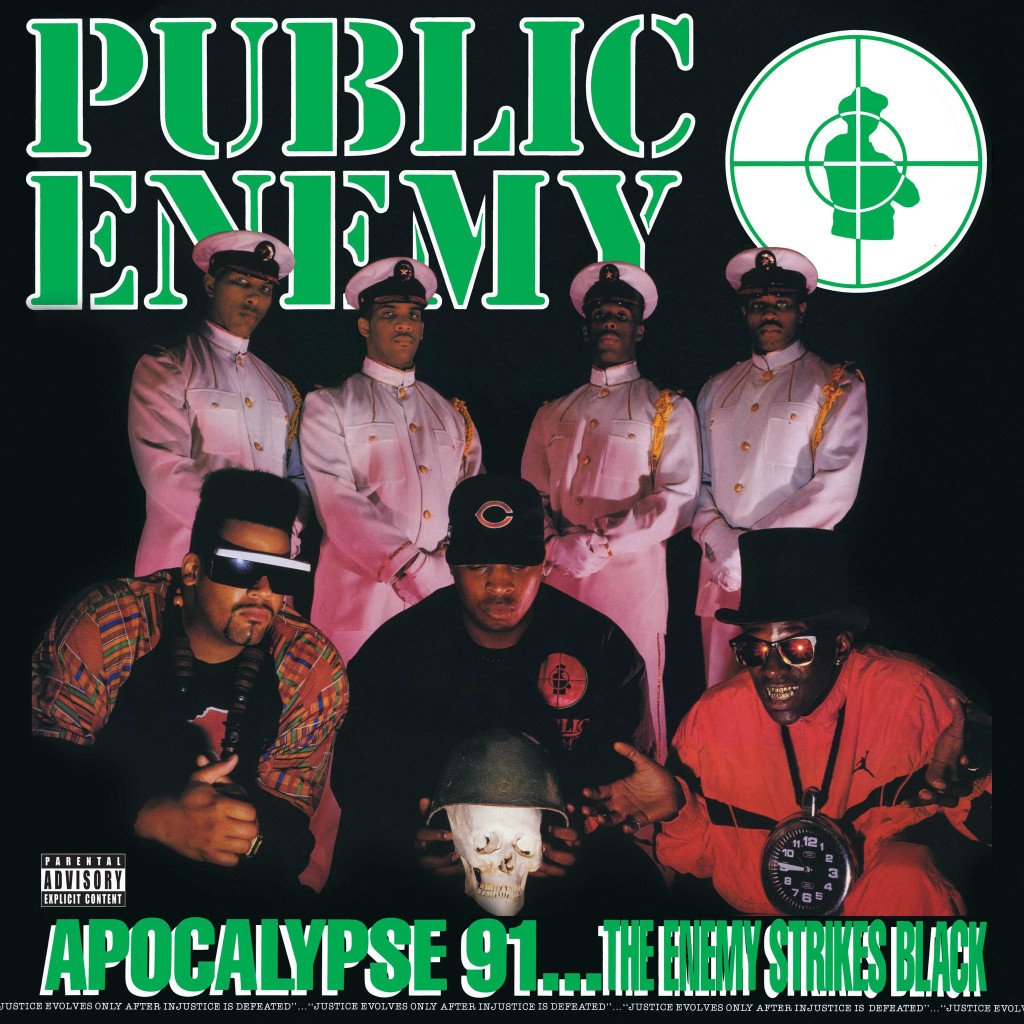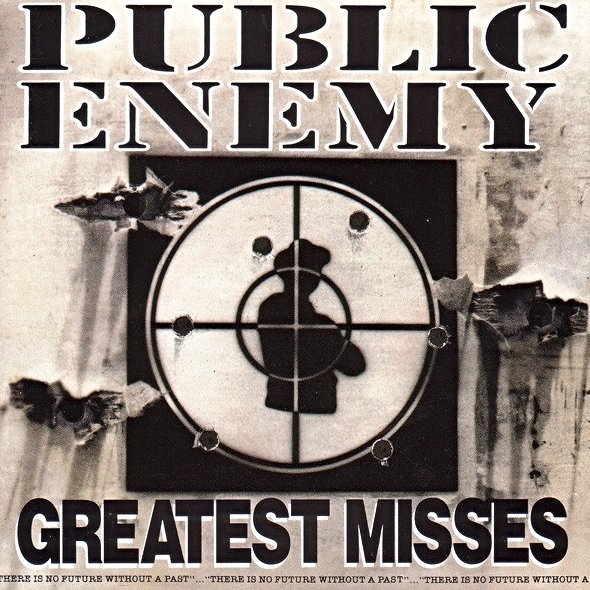Happy 35th Anniversary to Public Enemy’s second studio album It Takes a Nation of Millions to Hold Us Back, originally released June 28, 1988.
It Takes a Nation of Millions To Hold Us Back changed music. That’s not just the kind of hyperbole that music critics throw around, where every hot young star is transcendent and every album is a classic three minutes after it’s released. It Takes A Nation of Millions really did change music for the better when it was released 35 years ago.
The album changed the perception of what hip-hop music could be about. Three decades ago, the United States was in the final months of the Reagan administration, and inner-cities across the country were reeling from the effects of his policies. Crack use was at epidemic proportions. There was the genuine belief that not only was the Government not concerned with the plight of the Black population in the United States, it was openly hostile towards them. It Takes a Nation of Millions was the aural embodiment of the widespread rage generated towards this crooked government system.
Public Enemy was the perfect vessel to deliver this message. Carlton “Chuck-D” Ridenhour had the booming voice and presence of a respected statesman and activist. William “Flavor Flav” Drayton was the volatile court jester, an unpredictable version of Bobby Byrd to Chuck D’s James Brown. Norman “Terminator X” Rogers was the stoic, wordless DJ who moved with precision when behind the two turntables. And the Bomb Squad, Public Enemy’s notorious production team, created the perfect soundscape: a pulsating, chaotic, and intense wall of sound that could overwhelm the listener, but built on a foundation of soul and funk.
This isn’t to imply that Public Enemy was the first rap group to incorporate political content and social commentary into their music. Ever since “The Message,” rap music has dealt with the crumbling of urban society to crime and drugs, and I’ve written about artists like Boogie Down Productions, Stetsasonic, and others who have delivered a political message in their music. Public Enemy was overtly confrontational, irate, and focused in a way that few other artists were, across any genre.
Yet Public Enemy were dedicated towards educating, explaining the sources of the problems, identifying those working to improve things, and even inspiring the population to action. It’s an ambitious album that tackles complex issues, but doesn’t attempt to overly simplify their complexity. And despite the frenzied feel of It Takes a Nation Of Millions, listening to it never feels like a chore.
It Takes a Nation of Millions changed my life. I’d like to say that I bought it when it first dropped, but truthfully, I copped the tape later that summer after seeing the video to “Night of the Living Baseheads.” I was raised in a politically aware family, and even at the age of 13, I tried to stay mindful of the current events and social conditions that were shaping the United States. At least in a way that could be expected of a 13-year-old.
So when I saw the video and then bought, studied, and appreciated the album, it deeply affected my life and my thought process. It was one of the few hip-hop albums at the time to include the lyrics in the liner notes, so I pored over those lyrics in hopes of understanding, to the best of my ability, what Chuck was addressing. The group was delving into some deep, serious subject matter, and introducing me to new concepts and schools of thought that I hadn’t really been exposed to before listening to that album.
Watch the Official Videos:
Even in Oakland, California, not many Jewish 13-year-olds had been exposed to Black radicalism and the words of the Nation of Islam before Public Enemy came along. So the album gave me some of the first inklings of understanding the complex issues and ideas that the group presented on this album. For that reason, and the quality of the music itself, It Takes a Nation of Millions is, in my opinion, the greatest album of all time. Period.
According to Chuck D in Brian Coleman’s Check the Technique, the group and the Bomb Squad took great care in constructing the album, in all areas. Chuck often took months to write and perfect his lyrics, and then would occasionally record 40 to 50 takes of his verses. Furthermore, a lot of effort went into the album’s pacing, so that the album was put together “like it was just for cassettes.” Part of that entailed sequencing the album’s tracklist so that Side 1 and Side 2 would be roughly equal lengths, with as little dead space at the end of the cassette as possible. Furthermore, according to the book, the group’s original plan had Side 1 and Side 2 the other way around, only for Hank Shocklee to change his mind and reverse the order just before mastering the album.
Which is a good thing, because I can’t imagine It Takes a Nation of Millions starting off with anything other than “Bring the Noise.” Originally released on the Less Than Zero soundtrack ninth months before It Takes a Nation of Millions dropped, the song sets things off on the bombastic and hectic note. Chuck drops four rapid-fire verses over a mash of the horns from Marvey Whitney’s “It’s My Thing” and the shrill electric guitar and vocals from Funkadelic’s “Get Off Your Ass and Jam.” Terminator X’s barrage of scratches and Flav’s madcap ad-libs add to the song’s frenetic feel, helping set the tone for the rest of the album.
The song’s lyrics and subject matter were groundbreaking in their own right. Chuck was one of the first rappers to include references to Minister Louis Farrakhan in his rhymes. The religious leader and Black Nationalist has remained a controversial figure for over 35 years, but he was a central figure to hip-hop’s political development. Chuck D’s rhymes, much like many of the Minister’s speeches, advocated for Black empowerment in way that was largely unfamiliar in the realm of music at the time.
There’s a subtext to the album that is rarely discussed, due to the overwhelming power of the album’s political content. Many of the group’s lyrics reflect the group’s anger at the lack of respect the group felt they were receiving from the music critics and radio. Public Enemy had released their first album Yo! Bum Rush the Show in early 1987, and while the album fared respectably enough, it didn’t really find a huge audience within the United States. Their songs were ignored by “Black” radio, and mainstream publications didn’t really “get” their music. On the other hand, nations like the United Kingdom completely embraced the group; it’s not coincidental that many of the album’s interludes are snippets of a raucous concert at London’s Hammersmith Odeon in 1987.
“Rebel Without a Pause” was a response to the group’s lack of love from “Black” radio stations. It’s a solid mesh of Chuck’s words of power and the Bomb Squad’s production style. “Rebel” was the first song the group recorded after the completion of Yo! Bum Rush the Show; it was the B-Side of the “You’re Gonna Get Yours” 12” version. The track is an exercise in musical and lyrical aggression, a definitive roundhouse kick to the door to demonstrate that Public Enemy was here to stay. From the production side, the Bomb Squad pieced together a classic concoction, pairing the drums break from James Brown’s “Funky Drummer” and the piercing shriek of the horns from The JB’s “The Grunt.” It would be the first of three times on It Takes a Nation of Millions that the Bomb Squad would find a way to utilize “The Grunt,” here fashioning it into a teapot-like whistle.
On the mic, Chuck delivers four rugged verses, bursting with bravado and swagger: “From a rebel it's final on black vinyl / Soul, rock and roll coming like a rhino / Tables turn—suckers burn to learn / They can't disable the power of my label.” Flav’s boisterous ad-libs complement Chuck’s verses perfectly, as do Terminator X’s scratches of vocals from Chubb Rock and Joeski Love. “Rebel…” became a New York club staple, rocking the crowds at such infamous spots as the Latin Quarter.
“Don’t Believe the Hype,” the album’s second single, is a further reaction to what the group felt was a lack of respect from mainstream media. Ostensibly a sequel to “Rebel…” it was a dis to writers from publications like the Village Voice and Spin who they felt didn’t understand their music. But ultimately, the track became more than that. It’s an anthem targeting “false media” that creates a narrative and propaganda around an event or artist/group. Chuck encourages his fellow rappers not to fall for the okie-dokie and feed into the churning hype machine.
Enjoying this article? Click/tap on the album covers to explore more about Public Enemy:
Chuck directs most of his righteous anger at the members of the media, rapping, “Coming from the school of hard knocks / Some perpetrate, they drink Clorox / Attack the Black, because I know they lack exact / The cold facts, and still they try to Xerox.” Musically, “Don’t Believe the Hype” features the most straightforward beat on the album, as Chuck raps over a loop of one of the earliest uses of Melvin Bliss’ “Synthetic Substitution,” along with the horns from James Brown’s “Escapism” and the intro vocals to Whodini’s “Fugitive.” As if to underscore how little the group cared about promotion at the time, they opted not to record a video for the song, as they figured that it would never receive play anyway.
“Night of the Living Baseheads,” the album’s third single, is the best anti-crack anthem ever recorded. The crack epidemic in inner-cities had already inspired a good deal of songs warning about the dangers of drugs, “Night” possessed a unique urgency. The Bomb Squad makes use of the JB’s “The Grunt” for a second time, this time transforming its horns into a blaring claxon. Combined with Terminator X’s furious scratches and the various vocal snippets that drop in and out, the track almost becomes an exercise in sensory overload. Lyrically, Chuck paints a disturbing picture of desolate streets haunted by zombie-like addicts, rapping, “Sell their own, rob a home / While some shrivel to bone / Like comatose walking around / Please don't confuse this with the sound.”
“Black Steel in the Hour of Chaos” was the album’s fourth single, and one of the best and most epic stories ever recorded to music. After refusing to be drafted in the military, Chuck tells of being locked up in prison, and then seeking ways to free himself. You can feel the drama and tension in Chuck’s voice from the introductory lines, “I got a letter from the government the other day / I opened and read it, it said they were suckers!” As he furiously plots his escape, Chuck reflects on the evils of the prison system and the horrible conditions inmates are subjected too. He rhymes, “They got me rotting in the time that I’m serving / Telling you what happened the same time they're throwing / Four of us packed in a cell like slaves, oh well / The same motherfucker got us living in his hell.” Chuck rhymes over a sample of the pulsing piano solo from Isaac Hayes’ “Hyperbolicsyllabicsesquedalymistic,” imbuing the song with a sinister and methodical energy.
Though the presence of both Flavor Flav and Terminator is felt through the album, they both receive songs to further demonstrate their contributions to the group. Flavor Flav’s solo cut, “Cold Lampin With Flavor,” perfectly encapsulates the sideman’s unhinged style. With his distinctive gravelly voice and unorthodox delivery, Flav spits nearly impenetrable slang. His rhymes often come across as a form association, as he fills his stanzas with seeming non-sequiturs and references to obscure Long Island monuments and radio commercials. The musical backdrops, a jumble of synths and earsplitting horns, adds to the aural lunacy.
“Terminator X To the Edge of Panic” is the group’s dedication to their DJ, as both Chuck D and Flav heap praise upon the skills of the man who speaks with hands, rapping, “Understand his type of music kills the plan of the Klan / You know the pack attack the man with the palm of his hands.” And X certainly does a good amount of “yelling” throughout the song, first scratching the intro vocals to Queen’s theme from Flash Gordon, then vocals from Big Audio Dynamite and Spoonie Gee on the chorus. A sample from “The Grunt” makes its third appearance on the album here, as this time the Bomb Squad loops the introductory horns backwards, giving the song an eerie ambiance.
“She Watch Channel Zero?!” demonstrates the group’s metal influences. Public Enemy long maintained an affinity for metal. Their first album featured the hard rocking “Sophisticated Bitch” (featuring a young Vernon Reid of Living Colour fame on guitar), and Chuck name checks the heavy metal group Anthrax during the third verse of “Bring the Noise.” But Public Enemy carried with them the metal aesthetic throughout much of their music.
The song is built around a sample of Slayer’s “Angel of Death,” paired with another appearance of the “Funky Drummer” break. The blaring track gives Chuck a platform to lambast those who’re obsessed with the faulty images of reality portrayed on soap operas and daytime dramas. It’s probably my least favorite song on the album, but it did sound drastically different than almost anything that was being released at the time. And it’s still far superior to the mountains of lousy rap rock generated in the late ’90s and early ’00s. Years later, on their fourth album Apocalypse ’91: The Enemy Strikes Black, Public Enemy would re-record “Bring the Noise” with Anthrax. And throughout their career, the group would tour not only with Anthrax, but also rock groups like Sonic Youth, Primus, and U2.
A few songs on It Takes a Nation of Millions still remain underappreciated three decades later. “Louder Than a Bomb” has always been a personal favorite, an ode to the power of Chuck D’s words and message. Over a sample of Kool & the Gang’s “Who Gonna Take the Weight?,” Chuck thunders how lyrics have made him a, well, Public Enemy to the United States Government, who now monitors his every move. Jam Master Jay would remix the song years later for Public Enemy’s Greatest Misses (1992) album, giving it a smoother feel. I’ve always preferred the original.
“Caught, Can I Get a Witness?” is the group’s screed against artists and record labels that sue rappers and rap groups for sampling their music. In 1988, there had been only a few lawsuits involving sampling, most prominently James Brown and Jimmy Castor going after Eric B. & Rakim; it was another 4 years before Gilbert O’Sullivan vs. Biz Markie changed everything. Chuck rails against the “snakes” who don’t understand hip-hop as an art form and how sampling was an integral part to the genesis of the music, while chastising R&B artists for “singing their senseless songs to the mindless.” The wailing horns and the blistering guitars from the Bar-Kays’ “Son of Shaft” add to the track’s urgency. Oddly enough, Chuck has said that Public Enemy wasn’t sued for sample clearance issues until after they released this album.
The album’s interludes add to the overall atmosphere. “Mind Terrorist” is a pulsing, jarring musical assault, while “Show ’Em What You Got” is carried by the sax loop from Lafayette Afro Rock Band’s “Darkest Light,” as the distant voice of Dr. Ava Muhammad is broadcast paying homage to Black leaders across the globe caught up in the struggle for freedom. “Security of the First World,” is about as stripped-down as the Bomb Squad gets, a minimal, yet complex drum track that still sounds futuristic. Lenny Kravitz would later famously sample it for Madonna’s “Justify My Love.”
The album ends with a solid pair of largely uncelebrated tracks. First is “Prophets of Rage,” a charged anthem to the group’s growth as activists, featuring one of Chuck’s underrated lyrical performances. Chuck pledges his effort to uphold not just the legacy of the militant Black leaders of the ’60s and ’70s, but throughout history, invoking the names of Nat Turner and Marcus Garvey. Public Enemy then brings things to a close with “Party For Your Right To Fight,” the group’s dedication to the Black Panthers and description of the U.S. Government’s effort to destroy and discredit the organization.
It Takes a Nation of Millions is one of those rare albums that lives up to all the superlatives that have been heaped upon it. With all the acrimony towards the mainstream media, I often wonder if Chuck D smiles when he reflects on the level of acclaim that It Takes a Nation of Millions has received over the past 35 years. It became revered both in the hip-hop and mainstream press, and influential towards hip-hop artists and other artists across many musical genres. The explosion of socially conscious hip-hop in the late ’80s and early ’90s can be traced to It Takes a Nation of Millions. Likewise, it inspired musicians outside of the realm of rap music. For example, it’s hard to imagine a group like Rage Against the Machine existing without this album’s release.
Public Enemy never shied away from the spotlight and the attention that they earned from the album, and continued their work as hip-hop’s foremost politically aware crew. Though the next few years would prove to be bumpy, the group continued to release great music in the form of Fear of a Black Planet (1990) and Apocalypse ’91 (1991). It also set the stage for the group to eventually be inducted into the Rock & Roll Hall of Fame in 2013, 25 years after It Takes a Nation of Millions’ release.
Moreover, the success of It Takes a Nation of Millions allowed the group to tour the world many times over. It helped them shape the minds of generations to come, inspiring them to not blindly trust authority and to always seek out knowledge. It allowed the group to continue to work to empower those who live in the United States but whose existence is often barely tolerated by the police force and the local, state, and federal governments. That’s a legacy that few artists possess, but it’s one that Public Enemy has earned.
LISTEN:
Editor's note: this anniversary tribute was originally published in 2018 and has since been edited for accuracy and timeliness.





